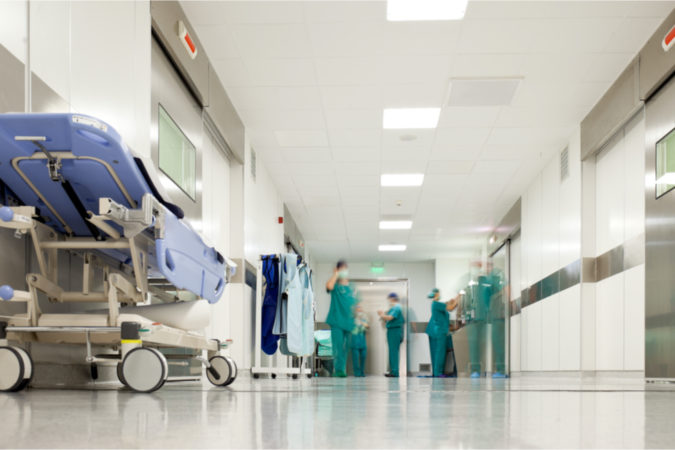
The average risk of three healthcare-associated infections — MRSA, central line-associated bloodstream infections and catheter-associated urinary tract infections – spiked to a five-year high in hospitals during the COVID-19 pandemic and remain high, according to The Leapfrog Group’s spring 2023 Hospital Safety Grade data.
Why this matters: The Leapfrog Hospital Safety Grade is the only hospital ratings program based exclusively on hospital prevention of medical errors and harms to patients. The grading system assigns a letter grade to nearly 3,000 U.S. general hospitals. Ascension Sacred Heart and HCA Florida West received “A” grades, while Baptist, Gulf Breeze and Santa Rosa Medical received “C” grades. Check out grades.
29% of hospitals nationwide received an “A,” 26% received a “B,” 39% received a “C,” 6% received a “D,” and less than 1% received an “F.”
The Safety Grades also show a continued decline in patient experience measures, which are reported by patients and correlated with patient outcomes.
Dig Deeper:
Infection Scores
| Infections | National Average | Ascension | Baptist | Gulf Breeze | Santa Rosa Medical | HCA Florida West |
| MRSA | 1.095 | 1.949 | 2.443 | NA | NA | 1.048 |
| C. diff | 0.489 | 0.54 | 0.462 | 1.775 | 1.047 | 0.077 |
| In Blood | 1.077 | 0.811 | 0.303 | NA | 1.986 | 0.774 |
| In Urinary Tract | 0.862 | 0.164 | 0.275 | NA | 0 | 1.033 |
| Surgical site after | ||||||
| colon surgery | 0.822 | 0.841 | 1.983 | 0 | NA | 0.765 |
| Sepis after surgery | 4.15 | 2.62 | 4.58 | 4.34 | 3.75 | 6.38 |
MRSA infection
Staph bacteria are common in hospitals, but Methicillin-resistant Staphylococcus aureus (MRSA) is a type of staph bacteria that is resistant to (cannot be killed by) many antibiotics. MRSA can be found in bed linens or medical equipment and can be spread if providers do not properly wash their hands between patients. MRSA can cause life-threatening bloodstream infections, pneumonia and surgical site infection
C. diff infection
Clostridium difficile (C. diff) is a bacterium that can cause diarrhea, abdominal pain, loss of appetite, and fever. Most C. diff cases occur in patients taking or having recently taken antibiotics, and fully killing the bacteria in an infected patient can be very difficult. C. diff can spread via contaminated equipment or by providers who fail to properly wash their hands between patients.
Infection in the blood
If a patient is in the hospital, he or she may be given a central line (a tube inserted into the body to deliver medication and other treatments). Patients with a central line are at high risk for developing a dangerous infection in the blood. These serious infections can lead to other complications, increase recovery time, and can often lead to death.
Infection in the urinary tract
If a patient is in the hospital, he or she may require a urinary catheter. Patients with catheters are at risk for developing a dangerous infection in the urinary tract. These serious infections can lead to other complications, increase recovery time, and can often lead to death.
Surgical site infection after colon surgery
This infection happens after surgery in the part of the colon where the surgery took place. These infections can be very serious, and may spread throughout the body. A patient with this type of infection often faces a long recovery in the ICU. Some people even die from the infection.
Sepsis infection after surgery
Sepsis is your body’s extreme reaction to an infection. All types of surgeries can put a patient at risk of infection that can lead to sepsis. This could be infection where the skin was cut, or an infection that develops after the surgery, like pneumonia. Sepsis requires immediate treatment or the patient may experience lifelong complications including organ failure. Some patients may die if sepsis is not treated quickly.
Note: NA – “Not Available” means that the hospital does not have data for this measure. This could be because the measure is related to a service the hospital does not provide. For example, a hospital that does not have an ICU would not be able to report data about ICUs. It could also be because the hospital had too few patients or cases to report data for a particular condition or procedure. A “Not Available” result does not mean that the hospital withheld information from the public.



